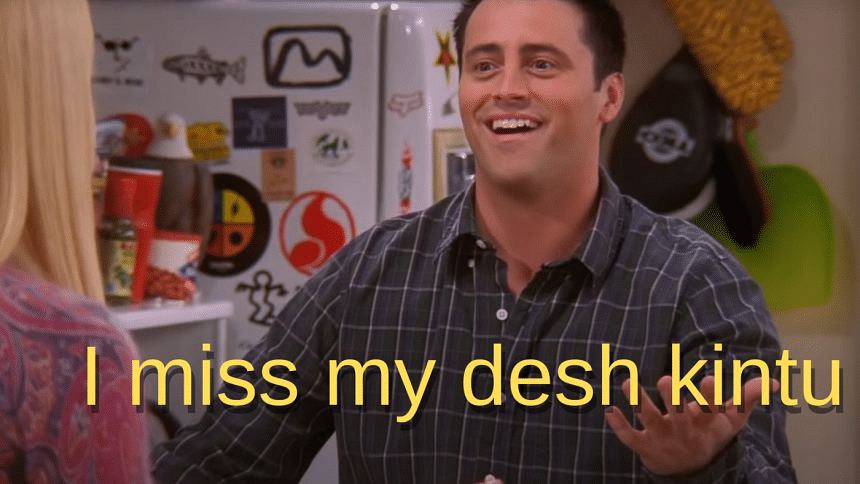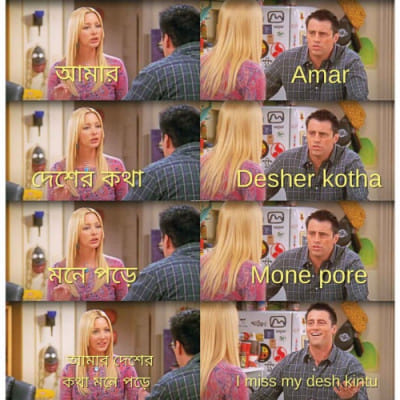Speaking Deshi When in Bidesh

Language was such a core part of my being that I was barely thinking about it when I stepped foot in a cold, snowy, faraway land. I did not miss Bangla much in the beginning because I was still conversing with family and friends back home in it. However, over time, especially on days when I was experiencing something emotional, I wished to have a conversation with someone in Bangla. Not only is it easier to express yourself in your native language when you're emotionally strained, the language is associated with childhood and comfort. Terms of endearment in Bangla feel so much more loving and intimate.
Another thing that my Bengali friends overseas agree with me is we all miss the use of Bangla slang. Hanging out just does not have the same vibes as adda mara. I have started to teach my closest non-Bengali friend Bangla phrases – I'm sure he'll be fluent by 2070.
One great thing about growing up speaking Bangla is the distinction of the formal pronouns. When you can switch from tumi to tui with a person, you know you've become friends. If I'm not speaking to someone in Bangla, how am I supposed to figure out what friendship level we're on? Generally, Bangla feels a lot more personal than English. I wonder if that is why we have a culture where nosiness is acceptable. Yes, I'm talking about you, next-door-auntie.

Even in Bangladesh, we use many English words while conversing in Bangla. For example, the word "practice". Has anyone ever used the Bangla word for it? A non-Bengali friend commented that trying to figure out what my sister and I are saying is like playing a video game on hard mode. We speak a completely different language, yet we use the occasional English word and if they're paying enough attention, they can figure out what the conversation is about.
Partly due to this habit, and partly because my default mode has to be English anytime I'm dealing with school or work, my Bangla got rusty. The worst bit is forgetting words and phrases in both languages and having expressions that just cannot be translated. Obhimaan, anyone?
Sometimes when I speak, I switch languages without realising it. Once I became aware of this, I tried to be more conscious of my words. However, this attempt has given birth to some truly horrifying moments in my life.
Two summers ago, I had to share a room with my sister and she always left the room without making the bed. What I wanted to say is, "Who's supposed to make the bed every day?" Halfway through, I forgot the Bangla for making the bed, but near the end of the sentence, I realised I was beginning to use another English word, and desperately wanted to end the sentence in Bangla, so the atrocity that came out of my mouth was this: "Bichhana ta ke make korbe, every-din?"
I will never live this down. My family knows. My friends know. And now you know too.
Moneesha R Kalamder is a University of Waterloo graduate. Write to her at [email protected]

 For all latest news, follow The Daily Star's Google News channel.
For all latest news, follow The Daily Star's Google News channel. 



Comments